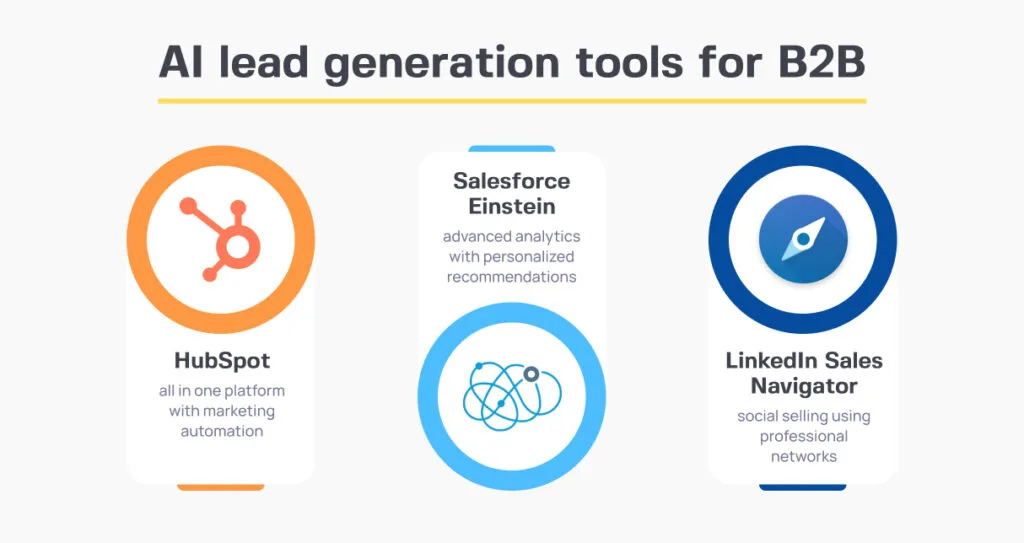Unlock Effectiveness and Growth With AI Automation for B2B Firms
AI automation is transforming the landscape for B2B companies. It decreases and improves operations dependence on human treatment. This shift allows services to make quicker, data-driven decisions. As organizations discover which processes to automate, they have to likewise consider the right devices to execute. However, challenges continue to be in taking on AI modern technology. Minarik AI. The effects of these adjustments might form the future of numerous companies in means yet to be totally comprehended
Recognizing AI Automation in the B2B Context
As companies progressively seek effectiveness, recognizing AI automation in the B2B context comes to be crucial. AI automation involves utilizing innovative technologies to enhance procedures, minimize human treatment, and improve decision-making processes. In the B2B landscape, this can materialize in numerous forms, such as automating client service communications, managing supply chain logistics, or optimizing advertising and marketing campaigns. Firms can utilize AI to analyze substantial datasets quickly, allowing them to recognize patterns and understandings that inform strategic selections. Furthermore, AI systems can incorporate perfectly with existing innovations, giving a cohesive system for handling company features. This understanding lays the foundation for companies to discover just how AI can change their operations, boost efficiency, and eventually foster sustainable growth in an affordable market.
Secret Benefits of Executing AI Automation

Recognizing Processes Appropriate for Automation

Choosing the Right AI Equipment for Your Company
When B2B firms take into consideration automating their processes, choosing the best AI devices comes to be crucial for accomplishing preferred outcomes. Companies must start by evaluating their distinct needs and objectives, ensuring alignment with company objectives (Growth Systems For B2B). Reviewing the adaptability, combination, and scalability capabilities of possible tools is critical, as these aspects determine long-lasting performance. Organizations should likewise think about user-friendliness and the degree of support provided by suppliers, as these components can impact successful execution. In enhancement, examining customer reviews and case researches can supply insights into just how specific AI options execute in real-world circumstances. By carefully selecting AI devices that fit their operational demands, B2B firms can improve performance and drive development while reducing potential interruptions
Getting Rid Of Challenges in AI Fostering
B2B companies typically encounter substantial difficulties in embracing AI innovations, specifically problems associated to data quality and resistance to transform management. Poor information top quality can hinder the performance of AI systems, while staff member unwillingness to embrace new processes can stall implementation efforts - AI Automation For B2B. Attending to these challenges is crucial for effective AI integration and optimizing its potential benefits
Data High Quality Issues
Guaranteeing high information quality is crucial for the effective fostering of AI innovations in business-to-business atmospheres. Imprecise, insufficient, or obsolete information can significantly impede AI initiatives, bring about incorrect insights and poor decision-making. Firms often deal with obstacles such as information silos, inconsistencies throughout different sources, and a lack of standard information formats. To overcome these issues, organizations need to purchase data cleansing, integration, and governance processes. Applying robust data monitoring practices assures that the info fed into AI systems is reliable and appropriate. Additionally, promoting a society of information top quality awareness among employees can boost data precision gradually. By attending to data quality problems, B2B companies can release the complete capacity of AI automation, driving effectiveness and growth.
Modification Administration Resistance

Measuring the Effect of AI Automation
Gauging the impact of AI automation in B2B companies requires a clear understanding of essential performance indicators (KPIs) that line up with company objectives. Reliable data analysis techniques are important for translating the outcomes, while durable ROI analysis methods assist determine the financial advantages of automation initiatives. Together, these parts provide a considerable structure for evaluating AI's payments to organizational success.
Trick Performance Indicators
Trick performance signs (KPIs) offer as vital devices for B2B business to evaluate the efficiency of AI automation efforts. By establishing Minarik AI clear metrics, organizations can gauge renovations in operational effectiveness, cost decrease, and income growth directly attributable to automation. Usual KPIs include cycle time reduction, mistake prices, client fulfillment ratings, and staff member productivity degrees. These signs supply understandings right into how AI systems are optimizing processes and enhancing general performance. In addition, tracking KPIs allows firms to recognize areas for further renovation and to straighten AI automation initiatives with tactical organization goals. Ultimately, a distinct structure of KPIs assurances that B2B business can quantitatively examine the impact of AI automation on their procedures and drive continuous growth.
Data Analysis Methods
Reliable data evaluation strategies play an essential duty in assessing the impact of AI automation within B2B companies. By using statistical approaches, organizations can determine fads and patterns in functional information, enabling them to examine the performance acquires achieved via automation. Methods such as regression evaluation and time series forecasting offer insights into exactly how AI-driven processes influence performance and decision-making. Furthermore, information visualization devices can properly interact findings to stakeholders, assisting in notified strategic decisions. Machine knowing formulas can further enhance evaluation by anticipating future end results based upon historical data, providing workable understandings. Eventually, these techniques make it possible for B2B business to determine success and enhance their AI automation campaigns, guaranteeing placement with company goals and enhancing overall efficiency.
ROI Assessment Methods
Assessing the return on financial investment (ROI) of AI automation is vital for B2B companies looking for to understand the economic implications of their technical campaigns. Business can utilize different ROI evaluation methods to gauge the performance of AI executions - AI Automation For B2B. One efficient method includes computing expense savings by comparing operational expenditures before and after automation (Minarik AI). Furthermore, gauging efficiency improvements through crucial efficiency indicators (KPIs) assists measure the advantages of AI. Consumer satisfaction metrics can also give understandings into the influence of automation on solution quality. To ensure a comprehensive assessment, firms ought to think about both straight abstract benefits and financial returns, such as improved decision-making capabilities and affordable advantage. This diverse evaluation makes it possible for B2B business to make enlightened decisions relating to future financial investments in AI innovation
Future Trends in AI Automation for B2B Companies
What technologies lie in advance for AI automation in B2B business? Arising patterns suggest a substantial change in the direction of improved data analytics capacities, enabling companies to make more educated decisions. Anticipating analytics will end up being increasingly important, enabling companies to prepare for market changes and client demands. Additionally, the integration of AI with Web of Things (IoT) technology is anticipated to simplify operations by providing real-time insights and automation of procedures. Firms will certainly also concentrate on enhancing customer experiences with customized advertising and marketing driven by AI formulas. Moreover, advancements in all-natural language handling will certainly promote far better communication between companies and customers. As these trends progress, B2B firms have to adjust to utilize AI automation effectively, making certain continual development and affordable advantage.
Regularly Asked Inquiries
What Industries Benefit one of the most From AI Automation in B2B?
Production, financing, medical care, and logistics sectors profit the most from AI automation in B2B. These fields utilize AI to maximize procedures, improve decision-making, and improve total functional effectiveness, driving considerable growth and technology.
How Does AI Automation Effect Worker Responsibilities and Responsibilities?
AI automation improves staff member functions and obligations by streamlining repeated jobs, enabling employees to concentrate on calculated efforts. This shift cultivates skill development, improves performance, and urges partnership, eventually driving organizational growth and development.
What Prevail False Impressions About AI Automation in B2B?
Typical misconceptions regarding AI automation in B2B include worries of task loss, beliefs that AI can totally replace human judgment, and underestimating the importance of cooperation between AI systems and workers for perfect results.
Just How Can Businesses Ensure Data Privacy With AI Automation?
Services can assure data personal privacy with AI automation by executing durable encryption protocols, sticking to regulatory conformity, conducting normal audits, and training employees on data handling methods to alleviate dangers and shield sensitive details.
What Are the Costs Connected With Executing AI Automation?
The prices connected with applying AI automation consist of software program purchase, facilities upgrades, training workers, ongoing upkeep, and prospective downtime during integration. Additionally, business may incur expenses related to data safety and security and compliance procedures.
Measuring the effect of AI automation in B2B companies needs a clear understanding of essential efficiency indicators (KPIs) that line up with company objectives. Trick efficiency signs (KPIs) offer as essential tools for B2B firms to analyze the efficiency of AI automation efforts. Effective information evaluation techniques play an essential duty in examining the influence of AI automation within B2B business. Assessing the return on financial investment (ROI) of AI automation is crucial for B2B companies seeking to comprehend the monetary ramifications of their technological initiatives. What technologies lie ahead for AI automation in B2B business?